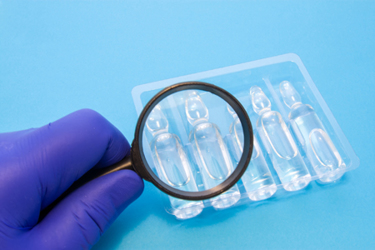Aseptic Container Closure Integrity Testing (CCIT) Systems For Pharmaceutical CDMO's

Learn how these non-destructive inspection technologies verify container closure system integrity with deterministic quantitative test methods for vials, ampoules, syringes, cartridges and auto-injectors.
The global aseptic pharma processing market was valued to be $10,633.3 million in 2020 and is expected to reach $24,364.0 million by 2031 witnessing a CAGR of 7.90% during the forecast period 2021-2031.
The growth is attributed to the reduced risk of high-cost product loss, high growth in the generics and biopharmaceuticals markets, and growing demand for contract manufacturing organizations (CMOs) for aseptic manufacturing of pharmaceutical products. Further, continued significant investments by biotechnology firms to improve the aseptic processing technology by incorporating automated instruments has also promoted the prominence of the aseptic pharma processing market. Contract Manufacturing Organizations are now significantly focused on the quality of the final product, in particular container closure integrity testing (CCIT) so the final aseptic drug product is not compromised.
Container closure integrity of parenteral products is essential to protect the product through the entire lifecycle until patient delivery. PTI’s non-destructive inspection technologies verify container closure system integrity with deterministic quantitative test methods for vials, ampoules, syringes, cartridges and auto-injectors.
The selection of the appropriate container closure integrity testing (CCIT) method depends on the requirements and purpose of the test. The factors considered while deciding the appropriate CCI test method include sensitivity and reliability of the test method, material of the primary package and inline versus offline testing requirement. Appropriate CCI test methods are able to detect breaches prior to product contamination and ensure patient safety. Moreover, it reduces the risk of catastrophic defects and product recalls.
The latest evolution in the package integrity testing of parenteral products is PTI’s patent-pending MicroCurrent HVLD technology and vacuum decay technology.
MicroCurrent HVLD Leak Detection Technology
- Applications include liquid-based products ranging from extremely low conductivity sterile water for injection (WFI) to proteinaceous products with suspensions.
- Non-conductive container materials can be glass, plastic or poly laminates
- Detects small pinholes, micro cracks and seal defect detection down to single-digit microns
VeriPac Vacuum Decay Technology
- ASTM Test Method F2338 and FDA Consensus Standard
- Defect detection down to 0.002 cc/min.
- Measures seal integrity of the entire container or package
- Tests for gas leaks for dry products (lyophilized vials, powder-filled)
- Tests for liquid leaks (liquid-filled vials, ampoules, cartridges and pre-filled syringes)
